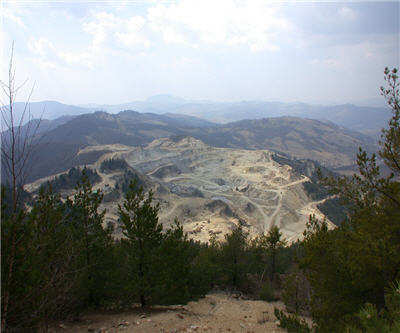
Rosia Montana Gold Corporation (RMGC), a Romanian mining company majority owned by Canada’s Gabriel Resources (TSX: GBU), is being investigated for alleged money laundering and tax evasion by local authorities
Rise Project, a member of the Organized Crime and Corruption Reporting Project (OCCRP), reports (Romanian language) that RMCG paid over US$300,000 to Kadok Interprest SRL, a firm that prosecutors say is a phantom company used by an organized crime network based in the Romanian city of Ploiesti.
The news outlet adds that prosecutors discovered the payments in an investigation into the “Păvăleanu network,” which resulted in the arrest three weeks ago of Marcel Păvăleanu, an advisor to the Romanian government.
Gabriel’s chief executive officer, Jonathan Henry, told Bloomberg that no employee or manager at the unit has been targeted and that the company is “cooperating fully” with the local authorities.
The criminal investigation is the latest of a series of setbacks Gabriel Resources has suffered on its flagship gold and silver project of Rosia Montana. For the last year, and with more intensity in the last three months, Romanians have been protesting what they say is an environmentally risky project and a larger problem of political corruption.
Last November a Romanian parliamentary committee rejected the project, forcing Gabriel to push it back several more months, and upping costs to about $1.5 billion.
Meanwhile a group of environmentalists sent Thursday an open letter to Canada’s Foreign Affairs Minister and members of parliament, demanding the prompt introduction of legislation to make local firms, particularly extractive industry corporations, accountable for proposed projects and actual operations abroad. The group has also requested Ottawa to withdraw its support for Gabriel Resources’ project.
The Canadian miner has already spent more than $500 million on the project in a region of Transylvania where mining dates back to the first century, since it first acquired the concession in the late 1990s.
2 Comments
George
I’m sorry,in Last November,parlimantary comittee,wich wasn’t even close to beeing impartial and to study the so called project (wich is nothing more than A DESASTER,and wich from environmental side,its a no brainer,as there is no method to “clean” the cianide and the dam will actually will have to resist for ever) rejected the BILL FOR A SPECIAL LAW,ESPECIALLY MADE TO SERVE GABRIEL RESOURCES INTEREST,WICH WOULD EXEMPT THE FIRM FROM ALL EXISTING LAWS, NOT THE PROJECT OR ENVIRONMENTAL APPROVAL,but they’re still “working” on the modifieing the mining laws so that (obviously not directly) serve Gariel’s interest.
So MAKE SURE YOU CORRECT THE NEWS …
Zambila
AT LAST ! One of many more to come !
Now everybody can see how much corruption is invoved in this project , or merely the tip of the garbage pile they want to hide with the help of corrupt politicians and media trusts . As you can see in another detailed investigation (Romanian language) :
http://www.riseproject.ro/articol/pe-cine-a-platit-rmgc-in-2013/
Now, where is that energetic PR employee (or director hossu?!?) alias leonid budge ? What lies and stupid argumentations does he prepare now I wonder…